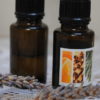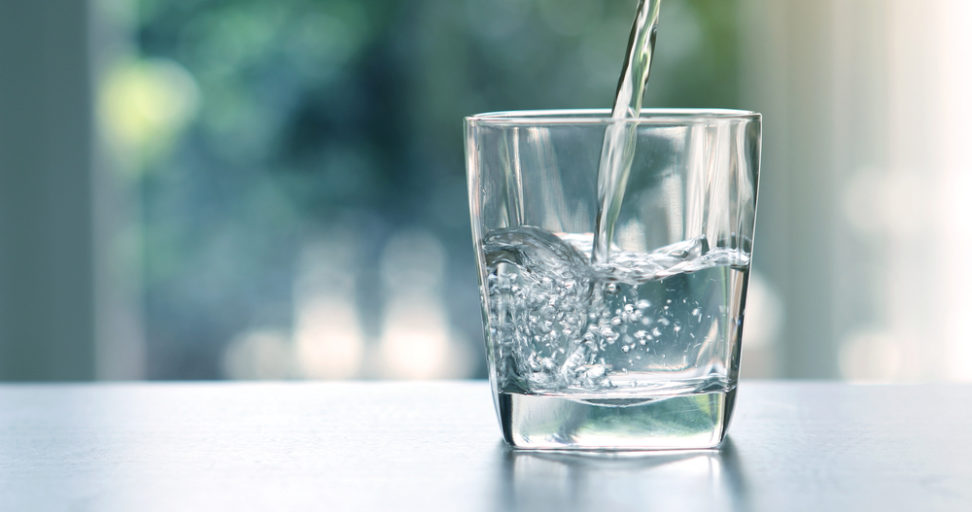What is dehydration? How does it happen during cool weather?
I like this simple definition from the Mayo Clinic: “Dehydration occurs when you use or lose more fluid than you take in, and your body doesn’t have enough water and other fluids to carry out its normal functions. If you don’t replace lost fluids, you will get dehydrated.”
With cool weather, dehydration is sneaky. We’re still losing the normal water through sweating, bathroom breaks, and breathing, and this happens even when the weather is cool. We just notice it less.
We’re also adding more warmth to combat the cold, depleting liquids further by sweating (even though slowly) under those layers of coats, blankets, and hats. And then there is the heating system. Our HVAC systems actually pull moisture from our skin and bodies.
Then, there’s your body’s individual predispositions, like you’ve got a mild stomach bug or fever, and you’re losing more liquid during those bathroom breaks and night sweats. Age, pregnancy, and even menstruation change how our bodies use and retain water. I’d recommend clicking through this article (14 Surprising Causes of Dehydration)
The Practical Side of Staying Hydrated
There are many articles highlighting the effects of not having enough water. But I want to focus on the practical specifics that are often overlooked. 
- Your concentration and thinking aren’t right. More and more research is showing how lack of water can create brain fog and affect memory.
- Your skin is dull and wrinkled. A lack of water affects your largest organ. Your skin might be screaming for liquids. Learn more with this article: How to Tell If Your Skin Is Dry or Dehydrated, According to Experts.
- You’re constipated. Yep, that is right. “Dehydration is one of the most common causes of chronic constipation. The food you eat makes its way from your stomach to the large intestine, or colon. If you don’t have enough water in your body already, the large intestine soaks up water from your food waste. This makes you have hard stools that are difficult to pass,” states this WebMD.com article.
- You’re working harder to breathe. This can surprise people, but just think, dehydration can increase irritation and inflammation, which is the last issue you need to deal with when you have allergies, asthma, lots of mucus, a deviated septum, and so on. As we enter flu season, hydration is especially important for those with chronic breathing issues. This New York Times article states, “Drinking fluids will diminish your headache and also bolster your immune response because your protein soldiers are conveyed via bodily fluids. Dehydration hampers their movement. It’s one reason people tend to want soup when they’re sick and may crave watery fruits like citrus and melon.”
 You’re convinced you’re hungry. From a 2017 Seattle Times article by a registered dietitian: “In one recent study, individuals responded ‘appropriately’ by drinking water when they were thirsty but not hungry only 2 percent of the time. They responded ‘inappropriately’ 62 percent of the time.” Grab that water before eating! You may find you eat less this holiday season if you stay hydrated!
You’re convinced you’re hungry. From a 2017 Seattle Times article by a registered dietitian: “In one recent study, individuals responded ‘appropriately’ by drinking water when they were thirsty but not hungry only 2 percent of the time. They responded ‘inappropriately’ 62 percent of the time.” Grab that water before eating! You may find you eat less this holiday season if you stay hydrated!- You’ve got a worse hangover than expected. With the holiday gatherings starting to fill our calendars, staying ahead of the game would be wise. While this Smithsonian article dives into details, the quick takeaway is that dehydration plays a role in hangovers. Studies are still looking into specifics, but what you can know: 1) alcohol is a diuretic and often people who are consuming alcohol are not consuming water to replace the loss of fluid and 2) if you’re starting your evening of dinner and drinks with friends by already being dehydrated, you’re only going to amp up those hangover effects.
There are copious reasons to drink more water. A daily rule of thumb: Drink half your weight in ounces daily, and if you feel like you need to drink water, drink more!
Have questions on how to add more liquids to your daily routine? Give me a call, and let’s talk.



![z31[1]](https://simplywholebydevi.com/wp-content/uploads/2018/06/z311-100x100.jpg)












